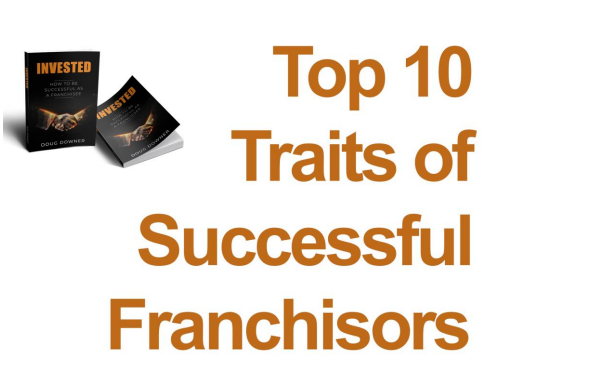Top 10 Traits of Successful Franchisors
- A proven business model
The business needs to deliver a fair ROI that is as competitive or more competitive than other
comparable franchise opportunities. The business needs to have traded and demonstrated
success, ideally across multiple locations.
The size of the network or the age of the business does provide a longer history to demonstrate
the proof of concept, but this does not mean a smaller, younger brand may not be a good
opportunity; both should be able to demonstrate their financial performance.
Does the franchisor make available to you the evidence of the financial performance of the
network? - Are dedicated, involved and well-supported
The more help you can get from a franchisor, in most cases, the better your chances of success.
The franchisor has built a successful business and knows how to run things to be profitable,
but they need to be able to demonstrate that they have and will support you as a franchisee.
Does the franchisor have the right quality and number of support personnel to assist you in
your business? - A strong, recognisable brand
The brand needs to have recognition and a loyal customer following. It is important that the
brand understands who their target customer is and that they market to them on the platforms
that are appropriate to that audience.
The franchisor needs to invest in marketing and have the right resources in place to help you
market the brand within your territory. - Happy and successful franchisees
The true test of a franchise system is the satisfaction and success of existing franchisees, and
this is why it is so important to conduct franchise interviews as part of your discovery process.
Doing good validation will inform you of the franchisor’s past performance, which may indicate
future performance for you as a franchisee. - Competition
It’s important to understand the competitive landscape: who are the competitors and how is
the franchise that you are considering differentiated from those competitors? When
considering location, research needs to be done regarding just how competitive the territory
is. If the territory is saturated, it may be difficult to change consumer habits and have them
come to your business. - An excellent location
When it comes to real estate, we’ve all heard of the catch call ‘Location, location, location’.
Never is this more relevant than a business that relies on customers coming onto the premise.
For a business that sells to the public, like a retail outlet or restaurant, an excellent location is
a busy strip mall or shopping precinct with signage visible from the main road and lots
throughout traffic. A business park with lots of offices may be another great place for a
restaurant franchise.
For mobile franchises or others that don’t require customers to come to them, an excellent
location may still provide visibility of signage or may have low rent even though it’s in a safe,
clean area of town. - Flexibility to change
As we’ve seen during the pandemic of 2020, businesses need to have the ability to adjust their
business model and pivot in times of change. Franchisees need a franchisor that is constantly
looking to evolve and innovate.
Things people must have, even during bad economic times, are usually profitable, such as
grocery stores, budget restaurants and retail stores known for their low prices. - Freedom from legal entanglements
It’s worth a little research to make sure there is no pending litigation or even convictions
against the franchisor that may impact on the franchisors’ profitability or focus on the business.
It may also indicate the strength of management and approach with franchisees. - Right price
This does not necessarily mean inexpensive. A franchise with great profit potential will likely
cost more than others but will also offer a greater return. Don’t be afraid to pay more if the
franchise will yield a greater profit. It is worth asking the franchisor what the resale values have
been on previous sales. It is important to know if the EBITDA multiple is at or above the industry
average.
The second part of pricing relates to positioning in the market because different areas will have
different sensitivities based on demographics. Fast-food restaurants have done well in tough
economic periods, as have luxury retailers. It’s the middle market that has found a challenge
during periods of recession and fiscal tightening. - Confidence
There are two types of confidence that you are looking for: the confidence that the franchisor
instils in you throughout the recruitment process and the confidence that existing franchisees
have in the network.
But the most important aspect is the confidence that you have in your decision-making about
the franchise opportunity. This is a combination of the research that you need to complete to
evaluate the opportunity and your gut feeling. If it doesn’t feel right, don’t do it.



